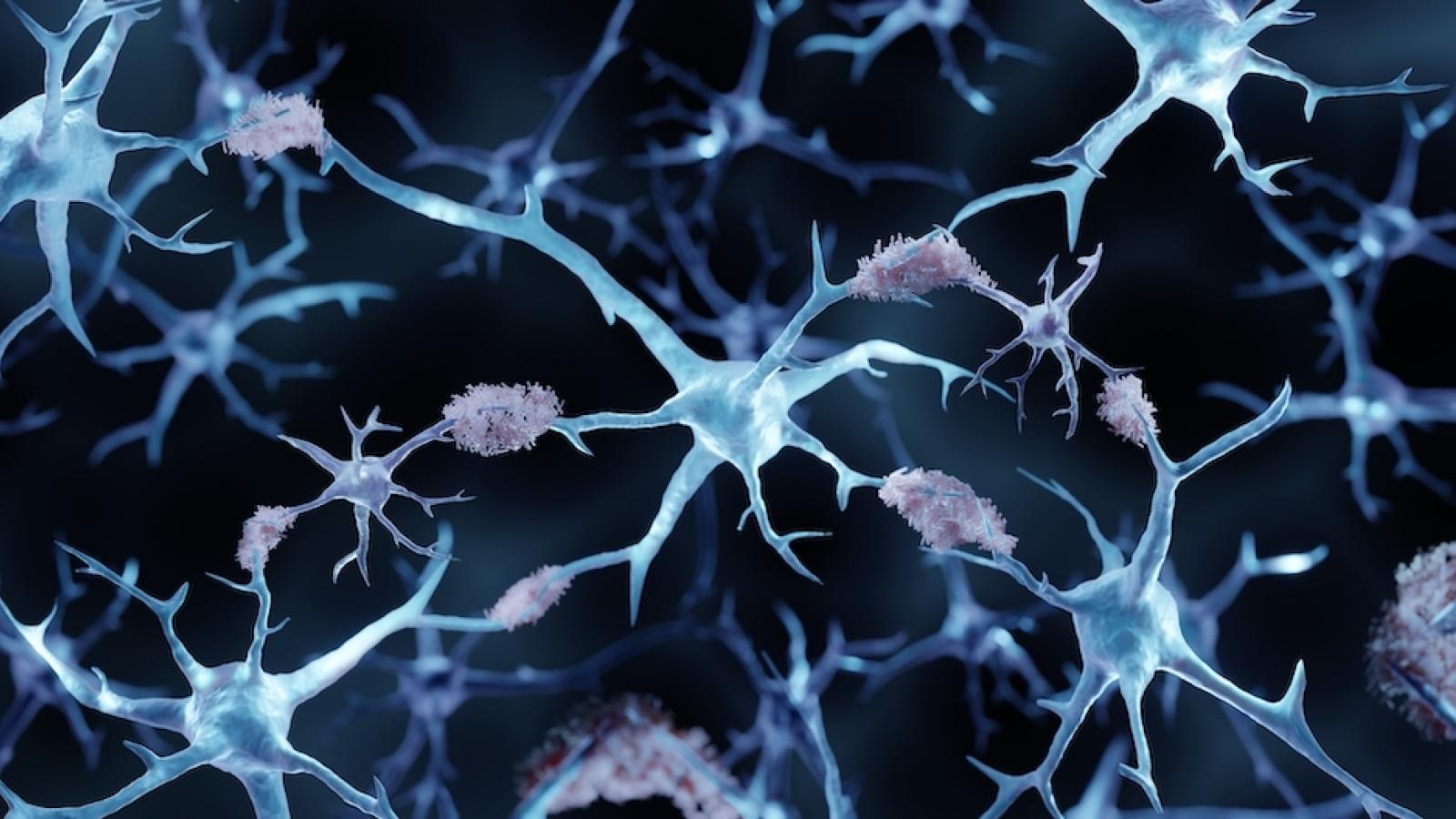Research led by Dr Frances Wiseman (UK DRI at UCL) demonstrates that an important protein implicated in Alzheimer’s, Apolipoprotein E (APOE), has increased abundance in the brains of individuals with Down syndrome. This international collaborative project between scientists at University College London and the University of California, Irivine, and published in Acta Neuropathologica, analysed post-mortem brain tissue to understand how the brains of people with Down syndrome with Alzheimer’s disease compare to Alzheimer’s in the general population.
What was the challenge?
There are approximately 6 million people worldwide living with Down syndrome – a condition characterised by developmental delay and intellectual disability, caused by an extra copy of chromosome 21. Down syndrome is also the most commonly occurring genetic cause of Alzheimer’s disease. By the age of 55, more than half of people with Down syndrome will have developed symptoms of dementia. The increased risk is thought to be linked to the extra copy of a gene called amyloid precursor protein (APP), found on chromosome 21, which causes greater levels of amyloid-beta protein to be produced.
People with Down syndrome also produce increased amounts of other proteins, because of the extra copies of other genes on chromosome 21. This may impact on the development of Alzheimer’s disease in their brain and cause differences in disease from the general population. It is important to better understand these differences, in order to understand how new Alzheimer’s disease-modifying therapies can be safely used in people with Down syndrome when they develop Alzheimer's disease.
What did the team do and what did they find?
To address this, the team analysed the proteins present in samples of post mortem brain tissue graciously donated by people with Down syndrome and Alzheimer’s disease, and people from the general population who either had Alzheimer’s disease or were ageing healthily. They found an increase in the abundance of APOE in the brains of people with Down syndrome and Alzheimer’s disease.
Importantly, APOE is not located on chromosome 21, demonstrating changes occur in the brain of people who have Down syndrome beyond those directly caused by increased number of genes on chromosome 21. APOE is important in brain health and Alzheimer’s, with functions including cholesterol transport and metabolism, clearance of toxic proteins, and immune responses. Investigating further, the researchers showed that the increase in APOE in the brains in people who have Down syndrome is likely to occur because of changes to cells that form the barrier between the blood system and the brain (astrocytes, endothelial cells and pericytes).
People who have Down syndrome are at greatly increased risk of Alzheimer’s disease, but until recently very little dementia research focused on this important group of individuals. We hope that our international collaborative research efforts will soon contribute to people who have Down syndrome being able to safely access new Alzheimer’s disease therapies.
Group Leader and Programme Leader for Animal Models
What is the impact?
Although there are many similarities between the development of Alzheimer’s diseasein people with Down syndrome and the general population, some differences also occur. Here the researchers show that differences occur in cells that form the barrier between the blood system and the brain in people with Down syndrome, and that an important protein called APOE is increased. This is an important, as side-effects associated with new Alzheimer’s disease-modifying therapies, such as lecanemab and donanemab are closely associated with the blood-brain-barrier. This highlights that further research is needed to better understand how to safely administer these drugs to people with Down syndrome, and to understand how raised APOE protein might impact on the progression of disease in people with Down syndrome.
First author Dr Cliona Farrell said:
“This research has importantly shown that there can be underlying differences in basic disease-associated processes in the brain of people who have Down syndrome-Alzheimer’s disease compared to Alzheimer’s disease in the general population. Although these changes may be small, they could have implications for future therapeutic interventions. This emphasises the importance of studying this group who are at an incredibly high risk to develop Alzheimer’s disease.”
Collaborator Dr Elizabeth Head at the University of California in Irvine added:
“Thanks to the generous donations of brain tissue from people with Down syndrome, international collaborative research as highlighted here can accelerate new findings that will be critical when considering new treatments to slow or halt Alzheimer disease. This research is not only important for the Down syndrome population, who have been historically underserved, but can also be extended to enhance our understanding of Alzheimer disease in everyone”.
This study was kindly supported by UK DRI, Alzheimer’s Research UK, Alzheimer’s Society and the Rosetrees Trust.
Reference: Farrell, C., Buhidma, Y., Mumford, P. et al. Apolipoprotein E abundance is elevated in the brains of individuals with Down syndrome–Alzheimer’s disease. Acta Neuropathol 149, 49 (2025). https://doi.org/10.1007/s00401-025-02889-0

